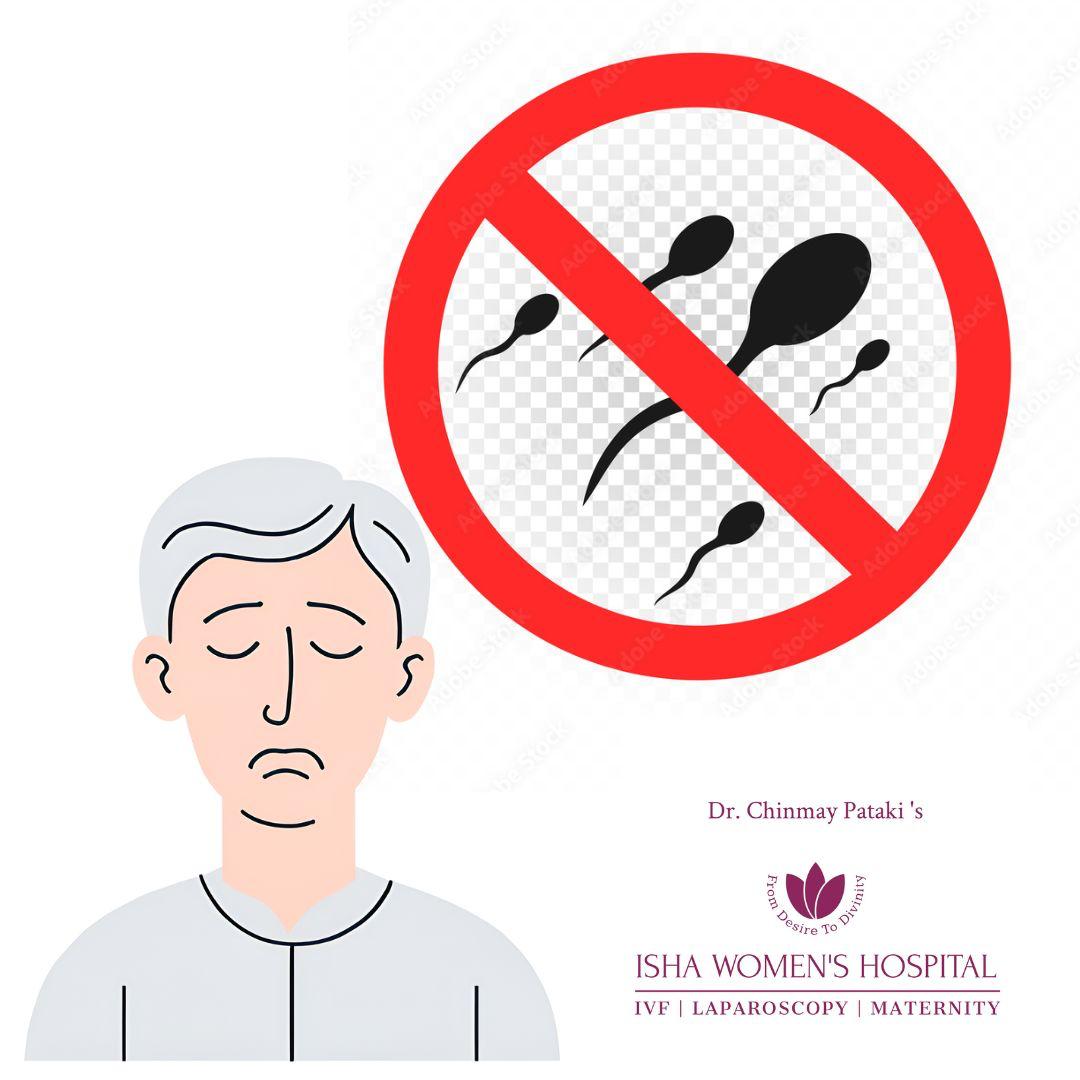Azoospermia (Zero Sperm Count)

In this article, we’ll explore the types, causes, symptoms, diagnosis, and effective treatment options available for azoospermia to help you better understand and manage this fertility issue.
What is Azoospermia?
At Isha Women’s Hospital, Dr. Chinmay Pataki, a male infertility expert and the best fertility specialist in Thane, offers advanced treatments for azoospermia. With his expertise in micro-TESE, he provides hope and pathways for men with this condition, enabling them to fulfil their dreams of fatherhood.
Types of Azoospermia
- Obstructive Azoospermia (OA)
In obstructive azoospermia, sperm production in the testicles is normal. However, a blockage in the reproductive tract prevents sperm from being released into the semen. This means your body is producing sperm, but something is stopping it from getting where it needs to go. - Non-Obstructive Azoospermia (NOA)
Non-obstructive azoospermia occurs when the testicles either do not produce sperm or produce very few sperm. This can arise from various factors that interfere with the sperm production process.
How to Diagnose Azoospermia?
- Semen Analysis
This is the first test performed to confirm azoospermia. A man provides a semen sample, which is analyzed for the presence of sperm. If no sperm are detected after multiple samples, azoospermia is diagnosed. - Physical Examination
A urologist conducts a physical exam to check for abnormalities in the male reproductive system, such as blockages, swollen ducts, or small, firm testicles, which may indicate testicular failure. - Hormonal Testing
Blood tests measure hormone levels, including FSH, LH, and testosterone. These hormones are essential for sperm production. - Genetic Testing
Tests like karyotyping or Y chromosome microdeletion analysis help rule out conditions like Klinefelter Syndrome or other chromosomal abnormalities. - Scrotal Ultrasound
Imaging studies may be used to detect blockages, masses, or abnormalities in the testicles or epididymis, helping differentiate between obstructive and non-obstructive causes. - Testicular Biopsy
A small sample of testicular tissue is removed and examined to check for active sperm production.
Conclusion
Although the diagnosis of azoospermia can be daunting, the dedicated team of Isha Women's Hospital supports you in every step of your journey. Led by Dr Chinmay Pataki, the best gynaecologist and male infertility expert, Isha Women’s Hospital is committed to provide compassionate, personalized care to help you overcome fertility challenges. With advanced treatment options and a focus on achieving positive outcomes, Isha Women’s Hospital is recognized as the best IVF centre in Thane for fertility care.
If you or your partner are facing challenges with azoospermia, don’t hesitate to reach out to us. Together, we can explore the options available to help you realize your dream of parenthood. Schedule a consultation today and take the first step towards building your family!
Frequently Asked Questions (FAQs)
Answer: Azoospermia is a medical condition where a man’s semen contains no sperm cells. It is a leading cause of male infertility and affects about 1% of all men and 10–15% of infertile men. Despite being a serious condition, many cases are treatable with medical or surgical help.
2. What are the types and causes of azoospermia?
Answer: There are two main types:
- Obstructive azoospermia: Sperm is produced but blocked due to injury, infection, vasectomy, or congenital absence of the vas deferens.
- Non-obstructive azoospermia: The testicles produce little or no sperm, usually due to hormonal issues, genetic conditions, or testicular failure.
3. How is azoospermia diagnosed?
Answer: Diagnosis involves:
- Semen analysis (repeated to confirm zero sperm)
- Hormonal blood tests (FSH, LH, testosterone)
- Scrotal ultrasound
- Genetic testing
- Testicular biopsy (to assess sperm production)
At Isha Women’s Hospital, our andrology team uses advanced diagnostics to identify the exact cause.
4. Can azoospermia be treated?
Answer: Yes, treatment depends on the type:
- Obstructive azoospermia: May be corrected surgically or sperm can be retrieved directly from the testes for use in IVF with ICSI
- Non-obstructive azoospermia: Hormonal therapy or microsurgical sperm retrieval techniques like Micro-TESE can be helpful
Donor sperm and advanced ART (Assisted Reproductive Techniques) are also options if needed.
5. Can men with azoospermia become fathers?
Answer: Yes, many men with azoospermia successfully father biological children with the help of treatments like ICSI (Intracytoplasmic Sperm Injection) using surgically retrieved sperm. Counseling and personalized fertility care improve success rates and emotional well-being.
